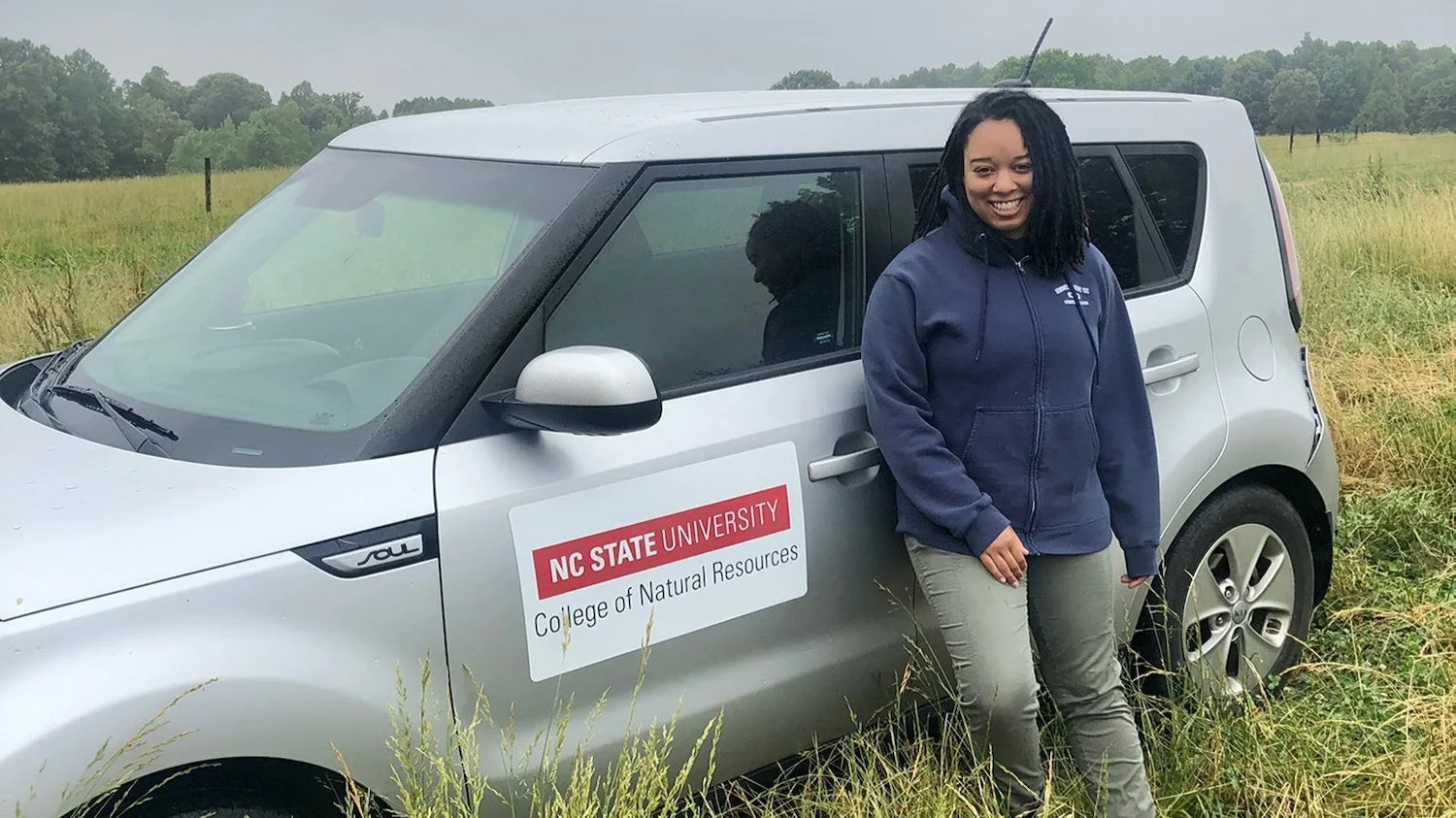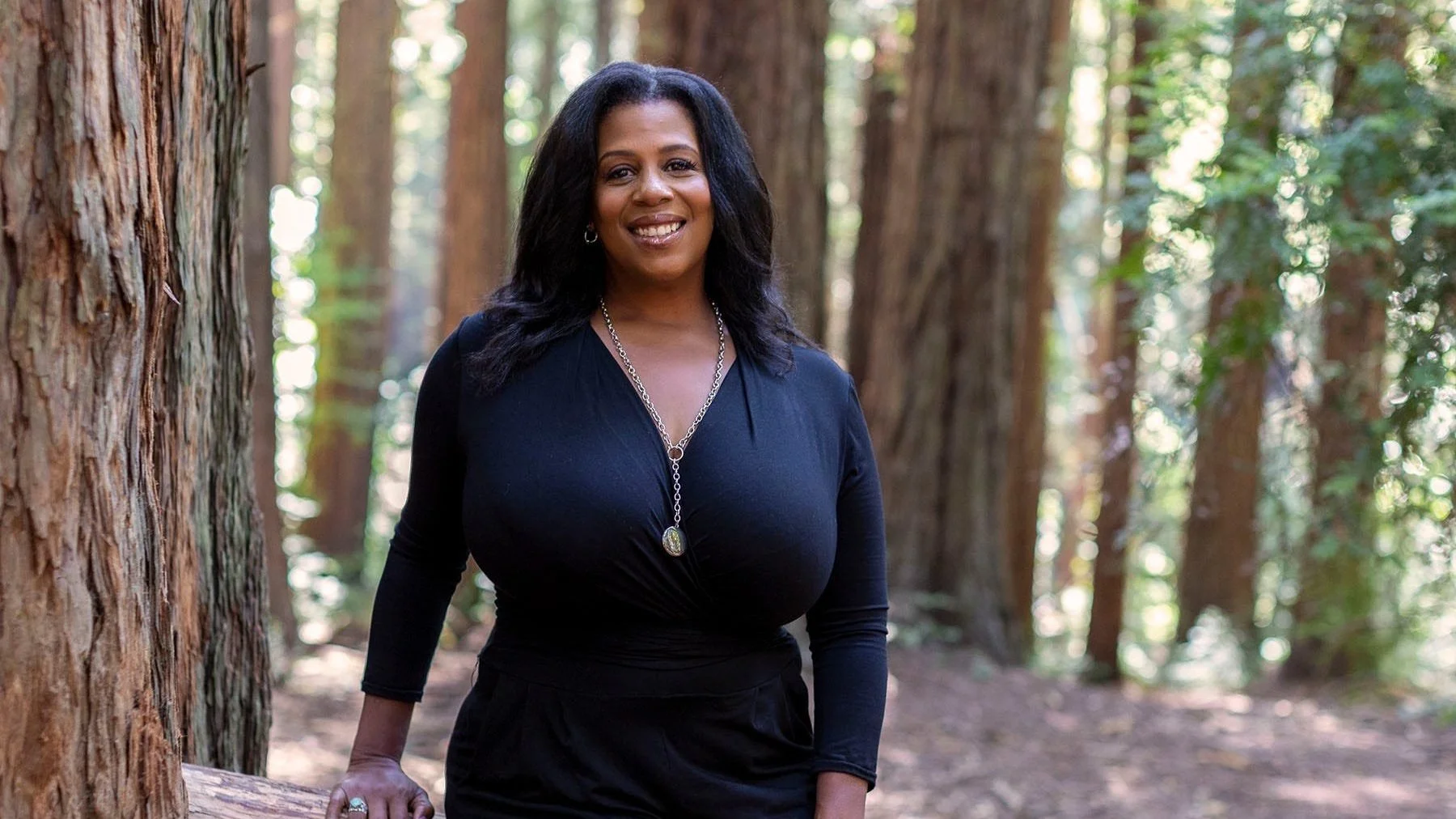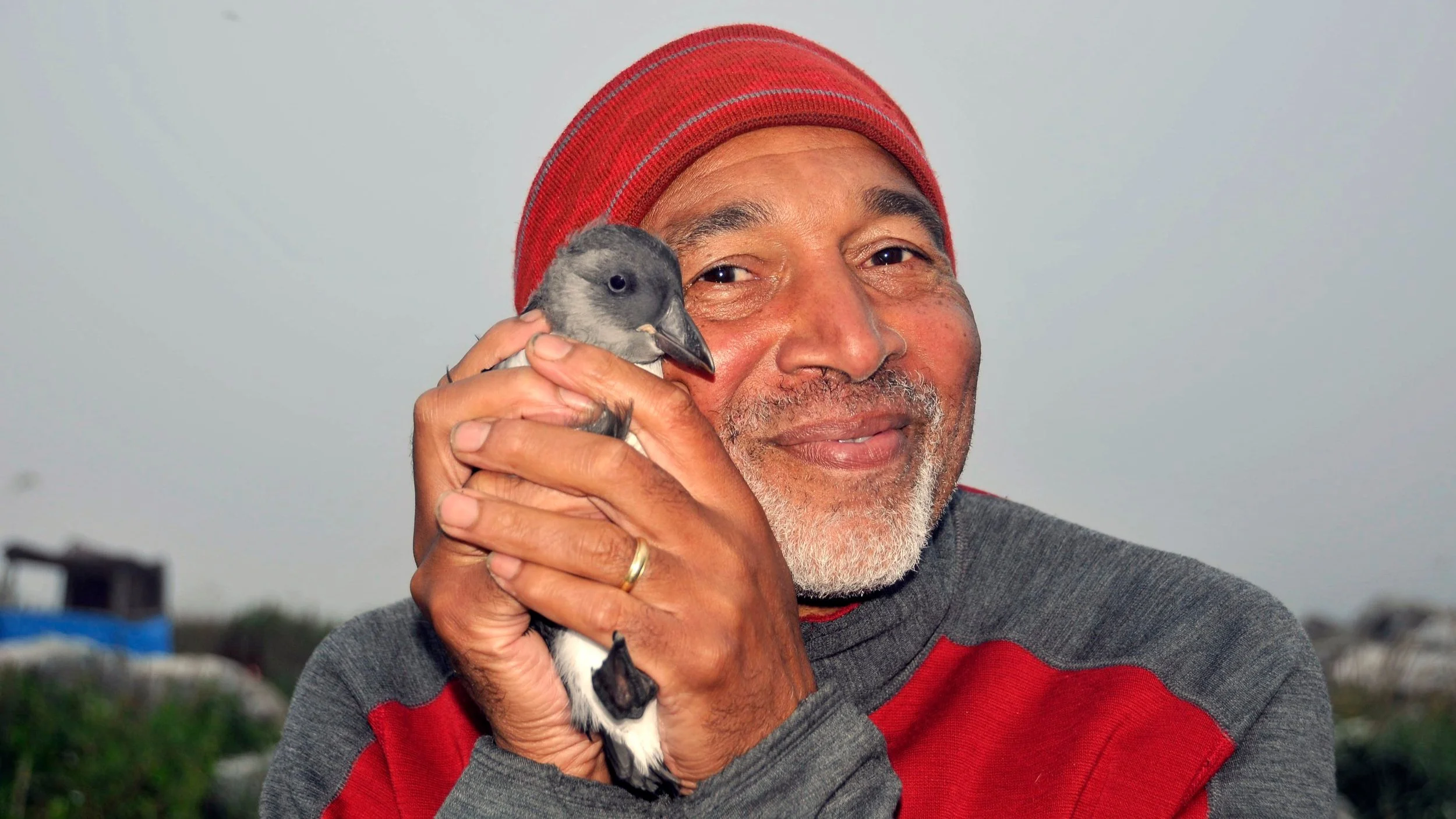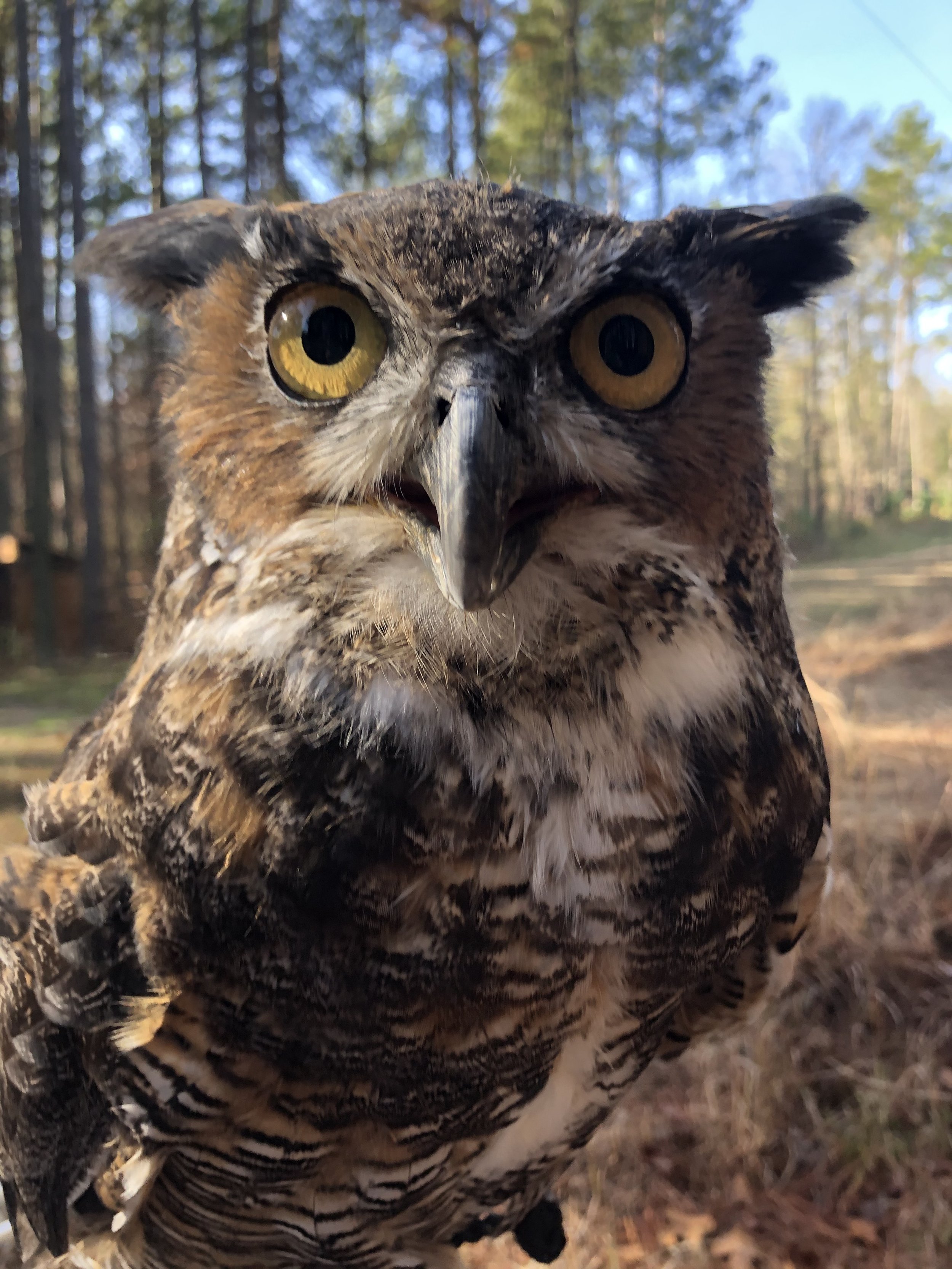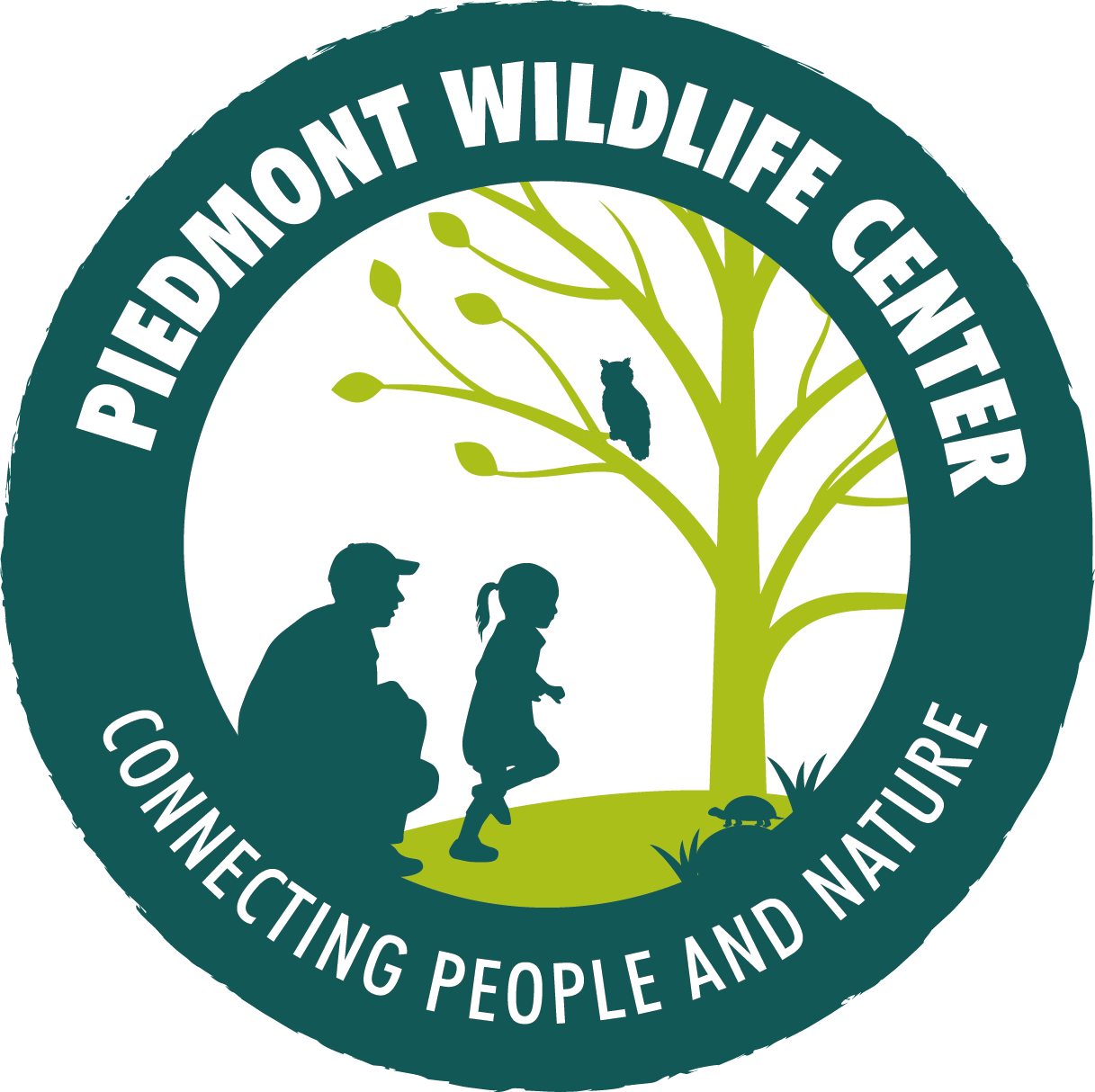Piedmont Wildlife Center recently welcomed two new raptors to our Ambassador Animal family! Both birds came to us from Sea Biscuit Wildlife Shelter in Brunswick County, NC, where they were treated for their injuries and deemed unreleasable. Give a big PWC welcome to Juniper the great-horned owl and Wink the red-tailed hawk!
Juniper the Great-Horned Owl
Juniper was found with a wing injury when she was still a nestling. The person who found her tried to care for her, but didn't have the proper training or permits to prepare her for life in the wild. She was eventually given to Sea Biscuit Wildlife Shelter in Oak Island, NC, where she was deemed unreleasable because of her lack of fear around people. Juniper came to PWC this fall and will spend the rest of her life educating people about great-horned owls.
Because Juniper was cared for improperly as a young bird, she became semi-imprinted on humans. She doesn't fully understand that she's an owl - she thinks she's a human! Because of this, you may hear her "talk" to you if you visit her enclosure at Leigh Farm Park. These chirping sounds are similar to the noises a baby owl would use to call to their mother.
Wink the Red-Tailed Hawk
Wink was found as a juvenile with his right eye missing - hence his name! This kind of injury is a big deal for a hawk. Hawks rely on their keen sight to hunt prey, so losing an eye can be deadly. Unfortunately, this kind of injury is common in young, inexperienced hawks who don't yet know how to avoid injuries while hunting.
A hawk who loses an eye can easily die from starvation. Luckily, Wink was found by kind-hearted individuals and brought to Sea Biscuit Wildlife Shelter on Oak Island, NC, where he was deemed non-releasable. He came to PWC this fall, and will be a great Ambassador for his species.
If you find an injured or orphaned animal, please don't attempt to raise or care for them yourself. Owls and hawks are cute, but they're not pets! Not only is it illegal to keep wildlife without a permit, but this can make it impossible for them to return to the wild - and can even lead to worse injuries or death.
Instead, call a licensed wildlife rehabilitator who can give them the best chance at a wild life. Piedmont Wildlife Center is NOT involved in rehab and is not equipped to accept, treat, transport, or raise injured/orphaned wildlife. If you’ve found an animal in need of help, we highly recommend Our Wild Neighbors and Turtle Rescue Team in the Triangle area.
Let's all do our part to keep wildlife wild!


















